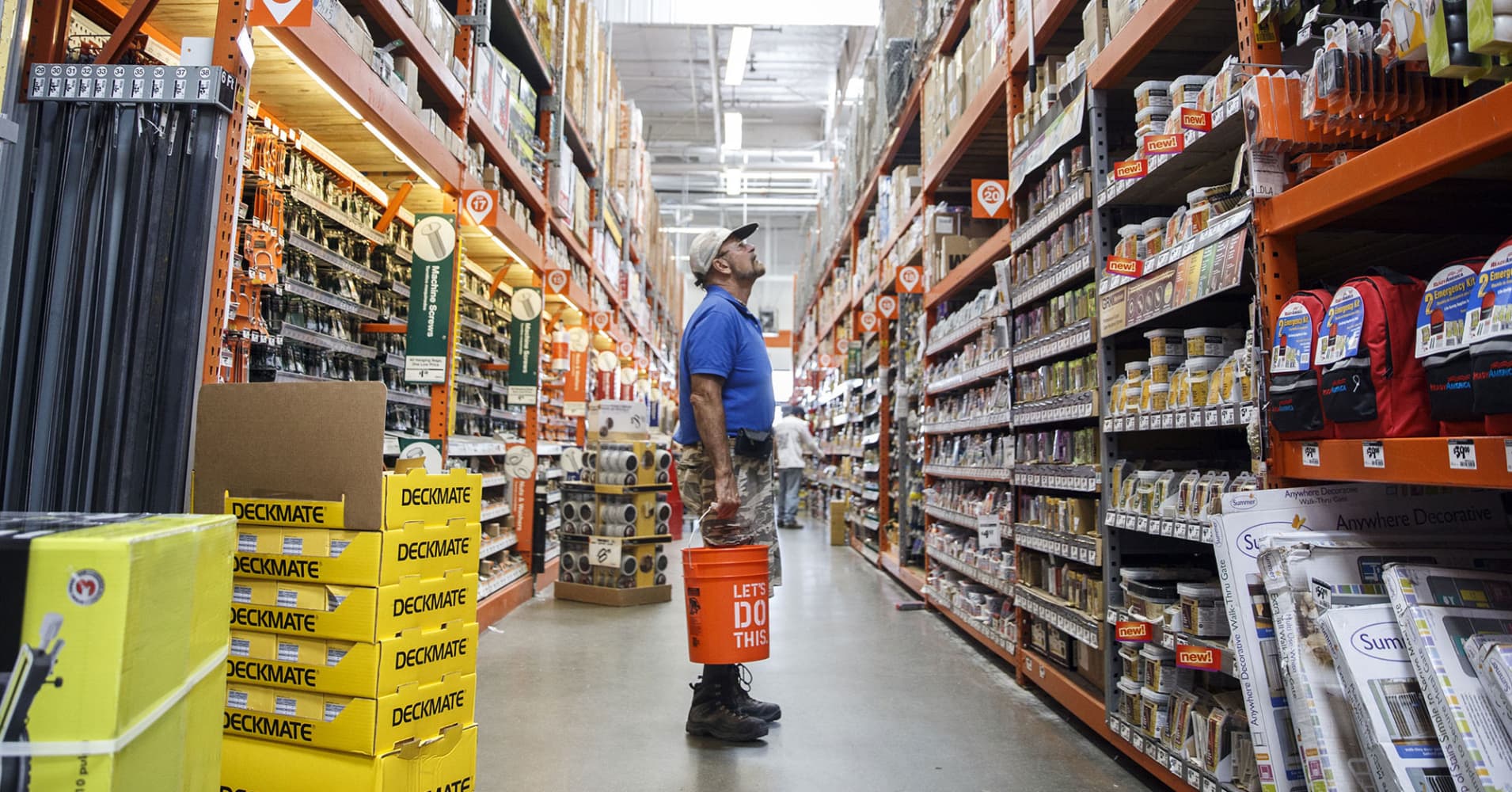Home Depot on Tuesday morning reported earnings and sales for the fourth quarter that missed analysts’ expectations.
Its shares were down more than 3 percent in premarket trading on the news.
Here’s what Home Depot reported for the fourth quarter compared with what analysts were expecting, based on data from Refinitiv:
*Earnings per share, adjusted: $2.09 vs. $2.16 expected
*Revenue: $26.49 billion vs. $26.57 billion expected
*Same-store sales: up 3.2 percent vs. growth of 4.5 percent expected
Home Depot reported net income for the quarter ended Feb. 3 of $2.34 billion, or $2.09 per share, compared with $1.78 billion, or $1.52 a share, a year ago. The latest results included a pretax impairment charge of roughly $247 million, or 16 cents per share, tied to Home Depot’s wholesale business, Interline Brands. Analysts were calling for earnings of $2.16 a share, according to a poll by Refinitiv.
Revenue for the quarter climbed nearly 11 percent from a year ago, to $26.49 billion from $23.88 billion. That also came in short of analysts expectations for $26.57 billion.
Sales at stores open for at least 12 months were up 3.2 percent, missing expected growth of 4.5 percent.
Home Depot also on Tuesday announced a dividend increase of 32 percent, to $1.36 a share, and a new $15 billion share repurchase program.
Home Depot is now calling for same-store sales to be up 5 percent in fiscal 2019, with revenue climbing roughly 3.3 percent. CEO Craig Menear said “the health of the economy and the consumer, as well as the momentum of our strategic investments” should help the retailer meet those targets.
It’s been spending aggressively to bulk up its e-commerce business and narrow the delivery window, or time it takes to get shipments to customers’ homes. In July of last year, Home Depot said it plans to spend $1.2 billion over the next five years on its supply chain.
A year ago, Home Depot benefited during the fourth quarter from selling more appliances. As Sears’ store base continues to shrink, and with J.C. Penney pulling out of the appliance category, Home Depot is expected to continue to take a larger share of that market. But that also means Home Depot faced a tough comparison this fourth quarter compared with 2017.
“Home Depot and Lowe’s face tough year-over-year comparisons in the fourth quarter that included hurricane-related sales and a strong year ago December that was negatively impacted by weather in 2018,” Wells Fargo analyst Zachary Fadem said in a note to clients ahead of Tuesday’s report.
“The housing market remains delicate,” he added.
For much of last year, confidence in the U.S. housing market soared, benefiting Home Depot and rival Lowe’s. But with mortgage rates climbing, attitudes have since started to turn sour. This may lead to home prices rising at a slower rate and the market cooling down, which has sparked some fears for the sector.
As of Monday’s market close, Home Depot shares are up nearly 11 percent so far this year, bringing its market cap to roughly $214.6 billion. That’s compared with Lowe’s, which has a market cap of about $84.3 billion and has watched its shares rise roughly 14 percent this year.
